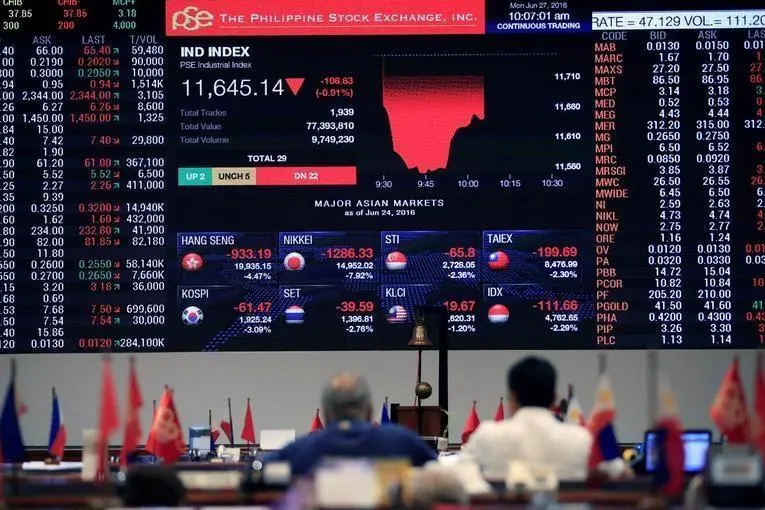PHOTO
InsiderPHreported that the PSE and the Taiwan Stock Exchange (TWSE) have signed a memorandum of understanding to develop a derivatives trading market. The agreement will allow the two parties to create a framework for how to proceed not only with the development of the actual infrastructure of the derivatives market but also with the regulations and best practices around its operation and governance. According to InsiderPH, the PSExTWSE deal is 'part of [PSE President Ramon Monzon's] initiative to launch derivatives on PSE by early 2026 if regulatory hurdles-primarily the issue of how to fairly tax derivatives-are satisfactorily addressed.'
> What are derivatives? As the name suggests, they're things that you can buy that derive their value from some other underlying asset. Most investors who have experience trading crypto or US markets will be familiar with options trading, which is a type of derivative. An option contract gives the holder the right (but not the obligation) to buy a certain asset (usually a stock) at a certain price in a certain time frame.
> What would that look like? In the PSE context, an options market for Ayala Corp [AC] options might sell AC call options at a strike price of P700/share, expiring December 20, 2024, for a price of P0.15 per share. Options contracts are usually for 100 shares, so the total cost to buy this option would be P1,500 plus fees. The person who buys this contract would have the right (but not the obligation) to buy 100 shares of AC for P700/share. If you bought this option contract today and AC went up to P750/share near the expiration, then you'd be able to sell the option for somewhere in the neighborhood of P5,000 (+233%). If AC was still trading below the strike price at the option's expiration, the option would be worthless and you'd have lost the entirety of your P1,500 investment. I'm taking a ton of shortcuts to simplify this explanation, but if you're interested in learning more, Investopedia's article on options (What are Options?) is a great place to start.
> Why trade options? For most, it's the chance to place a very leveraged bet on the price movement of a stock. In this example, to gain exposure to the same price movement of 100 shares of AC as provided by the option you bought for P1,500, you would need to actually buy 100 shares of AC. Today that might cost P62,500. For professionals and veteran investors, though, options present the ability to limit losses and reduce risk.
> Is options trading risky? You bet! Options trading is the closest thing to gambling that developed stock exchanges offer. For experienced and professional traders, options are a powerful tool to maximize gains and limit losses. For new traders, options present a new variable (time decay) that can be confusing until its impact on price is understood.
I didn't know this was coming when I joked a few weeks ago that the PSE would like to catch some of this online gambling magic. There is a lot of nuance to derivatives trading that could fill a book (or thousands if you search online), but just from my experience, new traders who try options trading tend to get overwhelmed by the size and movement of an active options market. When overwhelmed, it's almost like these investors have been mentally rebooted to some default mode that views the options market like a roulette wheel where huge bets are placed to either die or win in a binary process that usually ends in complete disaster. This sounds like a negative take, but it's really more realistic than it is overtly pessimistic about the potential impact of an options market on the PSE and its (growing) base of investors. New products will introduce new benefits and improve existing PSE positives, but they will also introduce new problems and amplify existing PSE negatives. Options will be no different. While options are not necessary for a market to function, they enhance the market's overall efficiency, liquidity, and depth.
Copyright © 2022 PhilSTAR Daily, Inc Provided by SyndiGate Media Inc. (Syndigate.info).




















